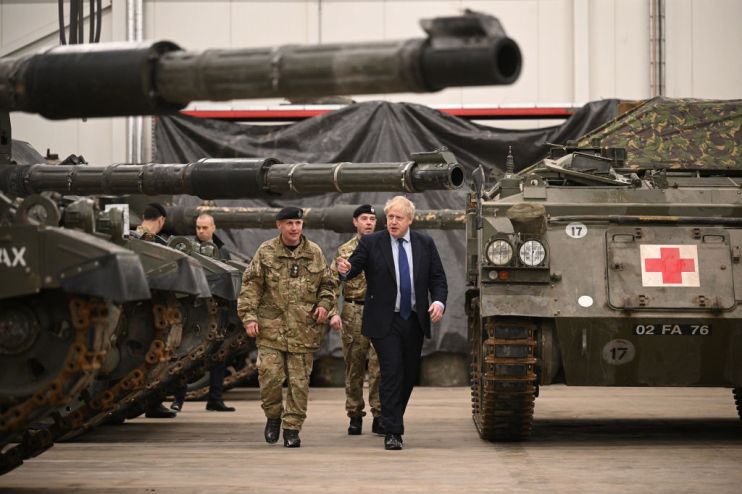Lord Frost calls for increased defence spending in wake of Ukraine invasion

The UK must boost its defence spending in the wake of Russia’s invasion of Ukraine, according to former cabinet minister Lord David Frost.
Frost last night said “we are going to have to spend more on defence and that will mean tough choices … we need to reform and liberalise so that investment keeps coming”.
Boris Johnson has been criticised for planned cuts to the amount of conventional British defence forces as a part of last year’s comprehensive review of foreign and defence policy.
As a result, the UK will have less tanks, troops and aircraft.
Johnson said during a Liaison Committee hearing last year that days of “big tank battles on European land mass are over” and that the army should instead invest in high-tech weapons, like “in the future combat air system [and] in cyber”.
Frost and former defence secretary Sir Michael Fallon both told the Sunday Telegraph that the government needed to dramatically increase defence spending in the wake of new threats from Russia and other recalcitrant states.
Fallon said annual defence spending should increase from 2.2 per cent of GDP to around 2.7 per cent – the level it was at during the 1990s.
“[My] only criticism of last year’s integrated review [of security and defence] was that its ambition wasn’t matched by significant further uplift,” Fallon said.
“I absolutely welcome both the review and the previous very welcome increase in 2020. But… its ambition wasn’t matched by a further increase building beyond 2.5 per cent by the end of the Parliament. That’s the kind of ambition we need.”
Russia’s invasion of Ukraine has led to Germany overturning decades of post-war political orthodoxy and dramatically increasing its defence spending.
In a virtual re-armament of the German military, chancellor Olaf Scholz said he would spend €100bn this year on an emergency defence package.
Defence secretary Ben Wallace said in an interview with the Sunday Telegraph: “This war will give us lots of pause to think about the balance of investment decisions.”